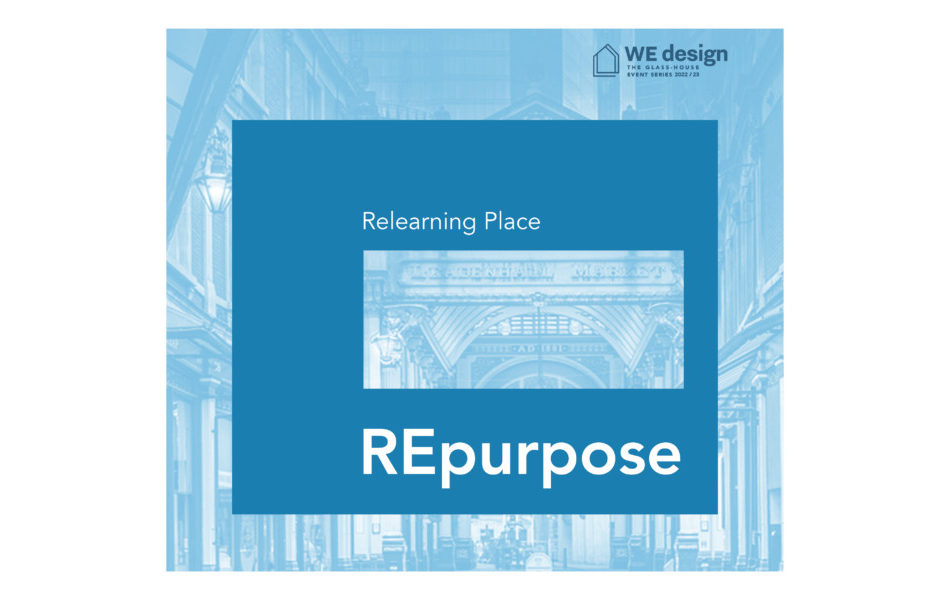Written by:
On Tuesday 28 March, we concluded our 2022/23 WEdesign series of public events in London with REpurpose, in partnership with and hosted by UCL’s Bartlett School of Planning. The final in-person event in our Relearning Place series, this was an opportunity to challenge the status quo and to consider how to build on our collective wisdom and learning over centuries, but also to have the courage to challenge existing practice, policy and culture, to unlearn in order to relearn and to explore what and how we might repurpose in placemaking.
REpurpose was co-designed and co-facilitated with our longstanding collaborator Dr Lucy Natarajan, who is Associate Professor and Director of MSc Sustainable Urbanism at the Bartlett, and a small group of her MA and PhD students. We were also joined by two student facilitators from last year’s WEdesign programme who are now graduates working in practice. Will Mckinney, from last year’s University of Sheffield cohort stepped into the space as a Glass-House Enabler supporting the Glass-House team, while one of Lucy’s former students, who facilitated at our session in London last year, returned for this year’s event as a participant. It was wonderful to have WEdesign alumni in the room.
Our event participants included community activists, design and planning professionals, local government officers, policy makers, educators and students. It was a lively group that brought together diverse perspectives, lived and professional experiences and skills sets, but all with a shared passion for creating places that better support and nourish both people and our planet. All, too, were curious to explore what we might repurpose in and through placemaking.
Getting people in the mood
When participants arrived, we asked them to think about and share some quick-fire ideas about repurposing through our interactive graffiti wall space. We posed simple questions around what we need to repurpose, and what repurposing can do for the benefit of people, places and our planet.
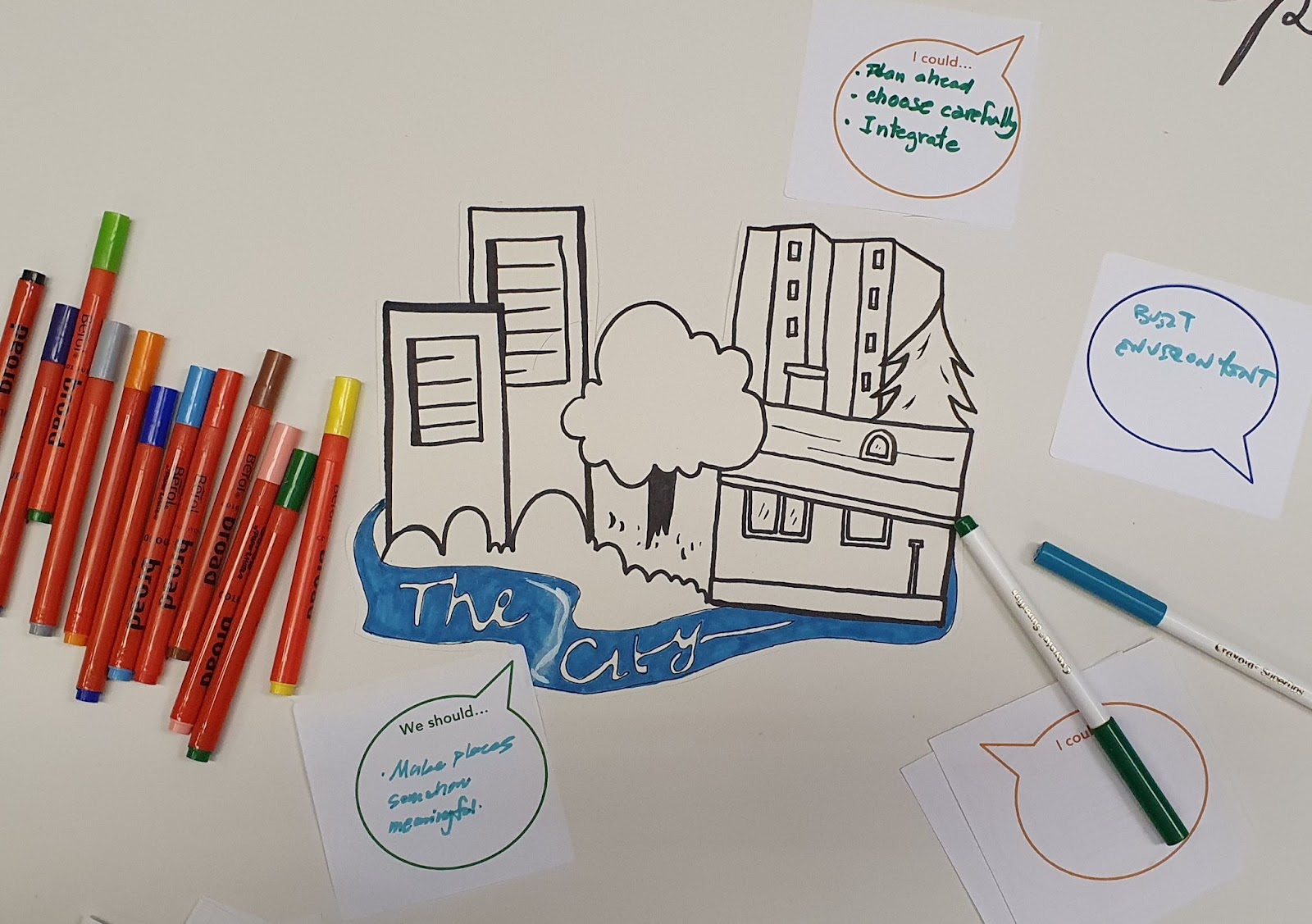
Some great ideas emerged…
We then asked participants to take a seat at one of our four tables, each with its own lens (Education, Policy, Ecology and Community), through which they would explore our theme of repurpose through our co-design activity.
Setting the scene
We kicked off the discussion with the whole room through a brief introduction to the broad theme of repurpose, exploring how we can repurpose the placemaking landscape around us to create more equitable and inclusive places while supporting and enhancing both local and global sustainability.
Lucy introduced the work that she, colleagues and students are doing at UCL Bartlett around sustainable ecosystems and the related areas of research being undertaken by our participating PHD students. She also stressed the importance of actively involving communities in placemaking through inclusive participatory methods, and the value of bringing people from diverse sectors and disciplines together.
Co-designing propositions for change
We then tasked our participants with the challenge of quickly co-designing a proposition for change. This was about bringing their experiences, creativity and innovation together to consider what changes to our culture, policy or practice would help us repurpose the way we shape places for the benefit of our people and our planet. Giving each table the lens of Education, Policy, Ecology or Community as their starting point for discussion, we asked them to work together to co-design their proposition, and to create a 3D model that represented their idea. These models were then used as prompts to represent and pitch their ideas to the room.
Education
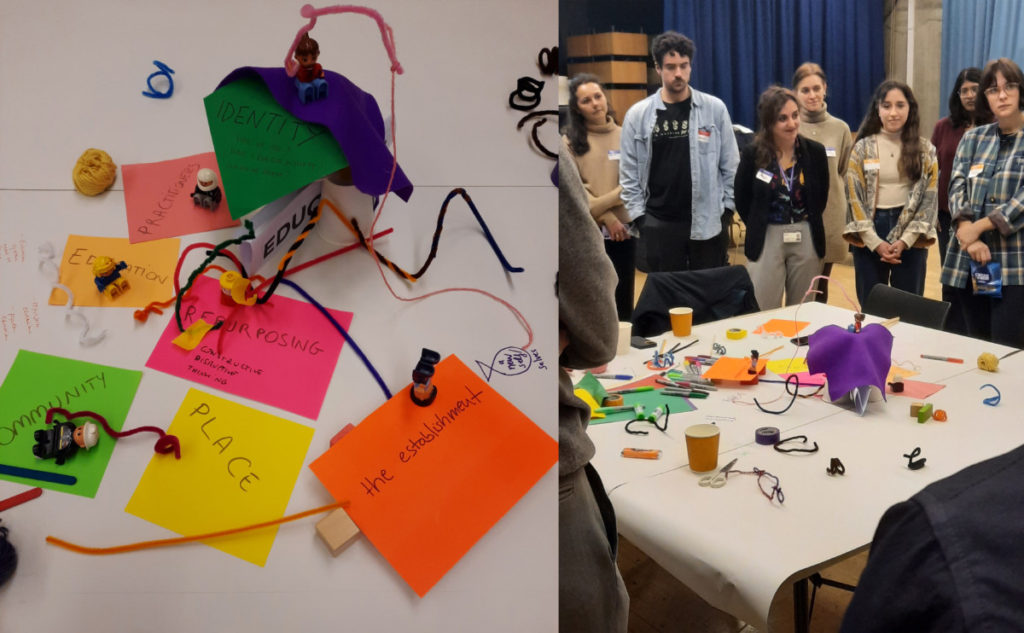
Our Education group, led by Martina, began their discussion with challenging questions around the difference between formal education designed for children and young people and the lifelong learning required for us to continually relearn and repurpose throughout our lives. Do we need to reconsider both the practice of education and the spaces created for it?
This led to an interesting discussion around education as a space for disruption, challenging the establishment, the roles and identities within education, linked both to educational institutions and the individuals operating within them. They also asked how both learning and critical thinking should connect one institution to another and to take education outside the institution. Can education become a space for constructive disruption?
One very practical recommendation that emerged was linked to repurposing school buildings so that they become spaces for lifelong learning for their local communities.
Practice
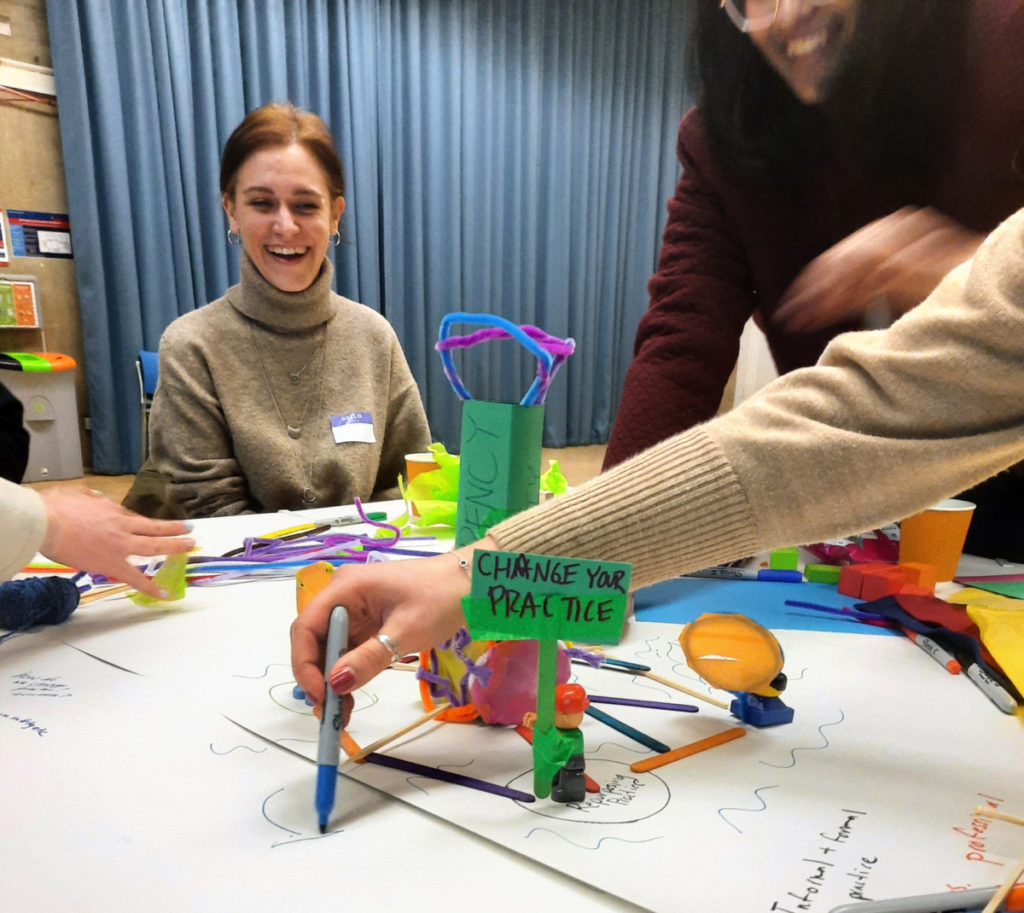
The Practice group, facilitated by Gabi, explored how we might repurpose both formal and informal practice within placemaking to better bridge the gap between silos of practice and between practice and communities.
The group focused on repurposing engagement practices to create more inclusive processes that not only better connect practitioners with the communities around them, but that also create links across different parts of the community.
They also stressed the importance of internal communication and collaboration within practice, even within a single organisation, and the need to repurpose the systems and processes within practice to create more space for this.
Community
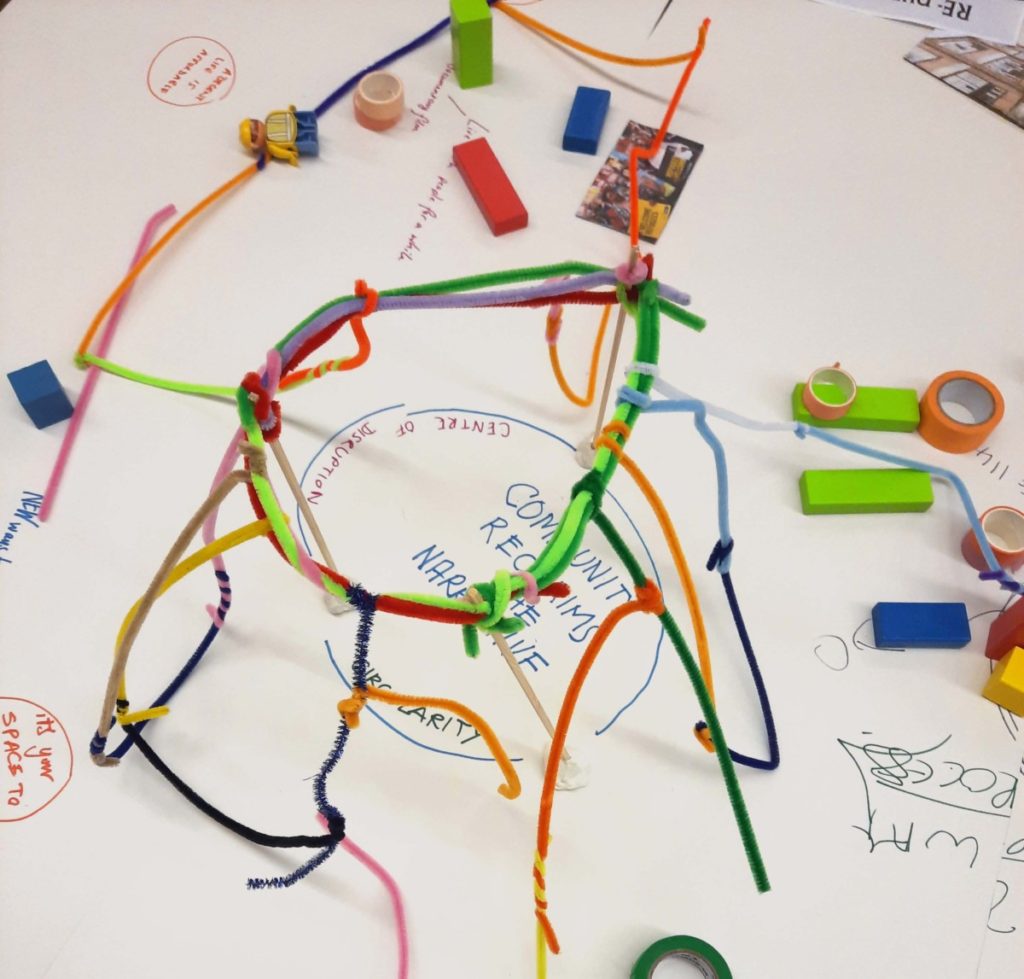
Marilia facilitated the Community table, which also spoke of the potential to repurpose the way communities are involved in shaping places. Their model illustrated their desire to disrupt and deconstruct the current linear and prescriptive models for community engagement, to create a more fluid approach that is circular and cyclical, representing ongoing dialogue.
They also spoke of the importance for more fluid, organic ways of working, with communities and practice feeding into each other, creating space to constantly adapt and repurpose this process.
Their practical recommendation for repurposing community engagement in design, planning and placemaking was to create space for communities to co-design and co-produce the very engagement process itself.
Ecology
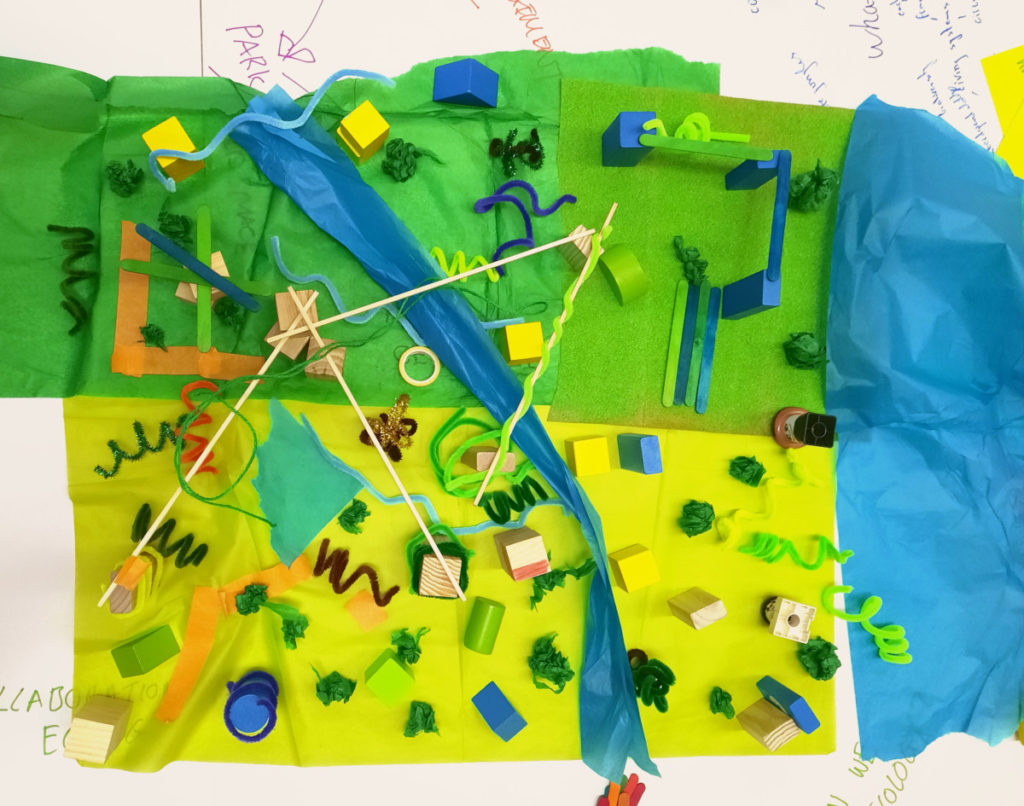
The ecology group, which was led by Dengkeqi and our WEdesign alumnus Will, also championed a more fluid, responsive and organic approach to working with nature. Rather than starting from a position of designing new green spaces into our cityscapes, how can our placemaking better respond to, work with and enhance the green spaces and ecologies that are already there?
They spoke of the interaction of the built environment and ecological systems, and the need to repurpose our cultural, social and built infrastructure systems to interact differently. It is only through the repurposing and integration of all of these systems that we can achieve ecological living for humans, creatures and plant life alike.
Pulling together our golden threads
Following the pitches, we were able to dedicate some time to a discussion that drew together some of the key themes that had emerged:
- The power of repurposing as a disruptive tool
All of the groups in some way illustrated the power of repurposing not simply as a remedy, but as a disruptive tool to explore and drive change. It is a way to challenge existing systems and mindsets, but rather than simply reinventing the wheel, of building on and selectively reusing and iterating what is already there.
- The power of organic growth and adaptation
There is something powerful about a process that can adapt and change to the situation and people involved, and provide space for being responsive and therefore more inclusive. Sometimes unscripted and messy can lead to positive outcomes.
- Building bridges
We need better bridges between practice and communities, between education and communities, across and within both communities and institutions, and across systems. We also need better connectivity between our built and natural environments, and the many ecolgies in any given place.
Everything is connected and we need to find ways to constantly build the bridges to support a more inclusive, collaborative approach to how we shape our places. We need to create the space and infrastructure for more positive interaction.
- Creating space to reflect
We are all so busy doing, that too often we do not find the time to stop, reflect and to listen to others. This is vital to us creating that space to unlearn, to relearn and to repurpose. Without the opportunity to reflect, we simply keep doing what we are doing without pausing to ask ourselves if we could do it better.
REpurpose was a fantastic way to round up this season of our WEdesign in-person public events, with rich discussion, and fantastic propositions for change.
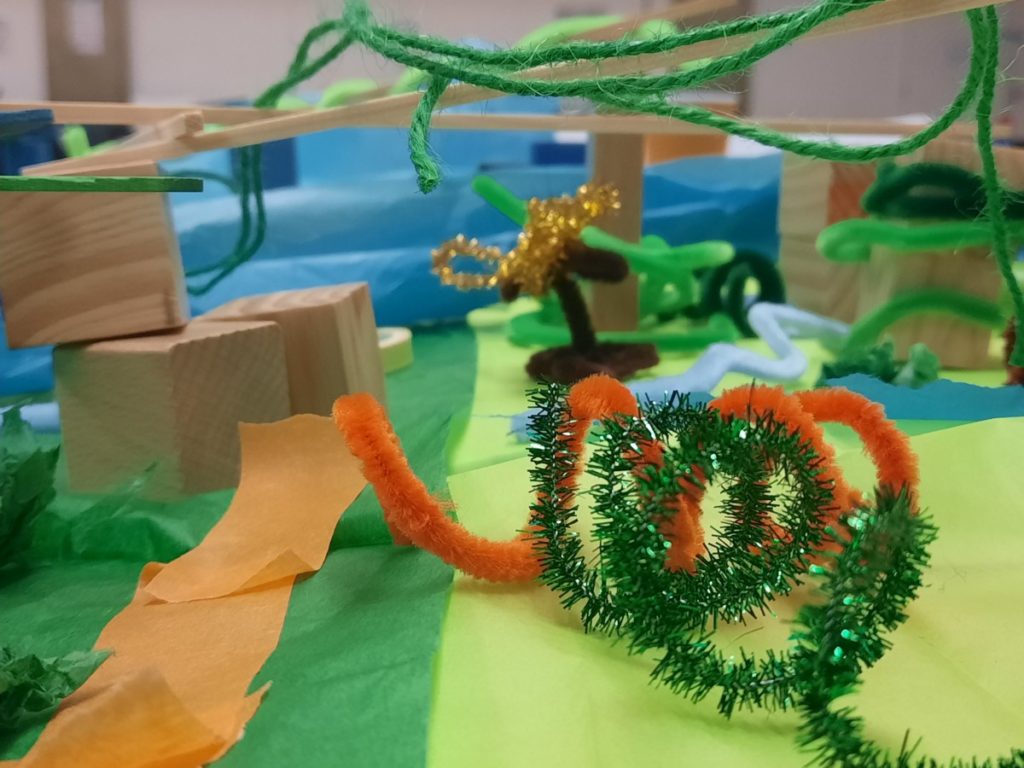
We would like to thank all the participants in London who attended and offered their time, thoughts and generous contributions. A huge thanks also goes to Lucy Natarajan, and her students for helping to shape and facilitate this event, and to UCL Bartlett for hosting us. A special thanks also goes to Will, now a seasoned WEdesign enabler and champion.

